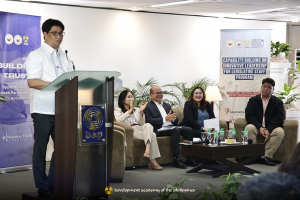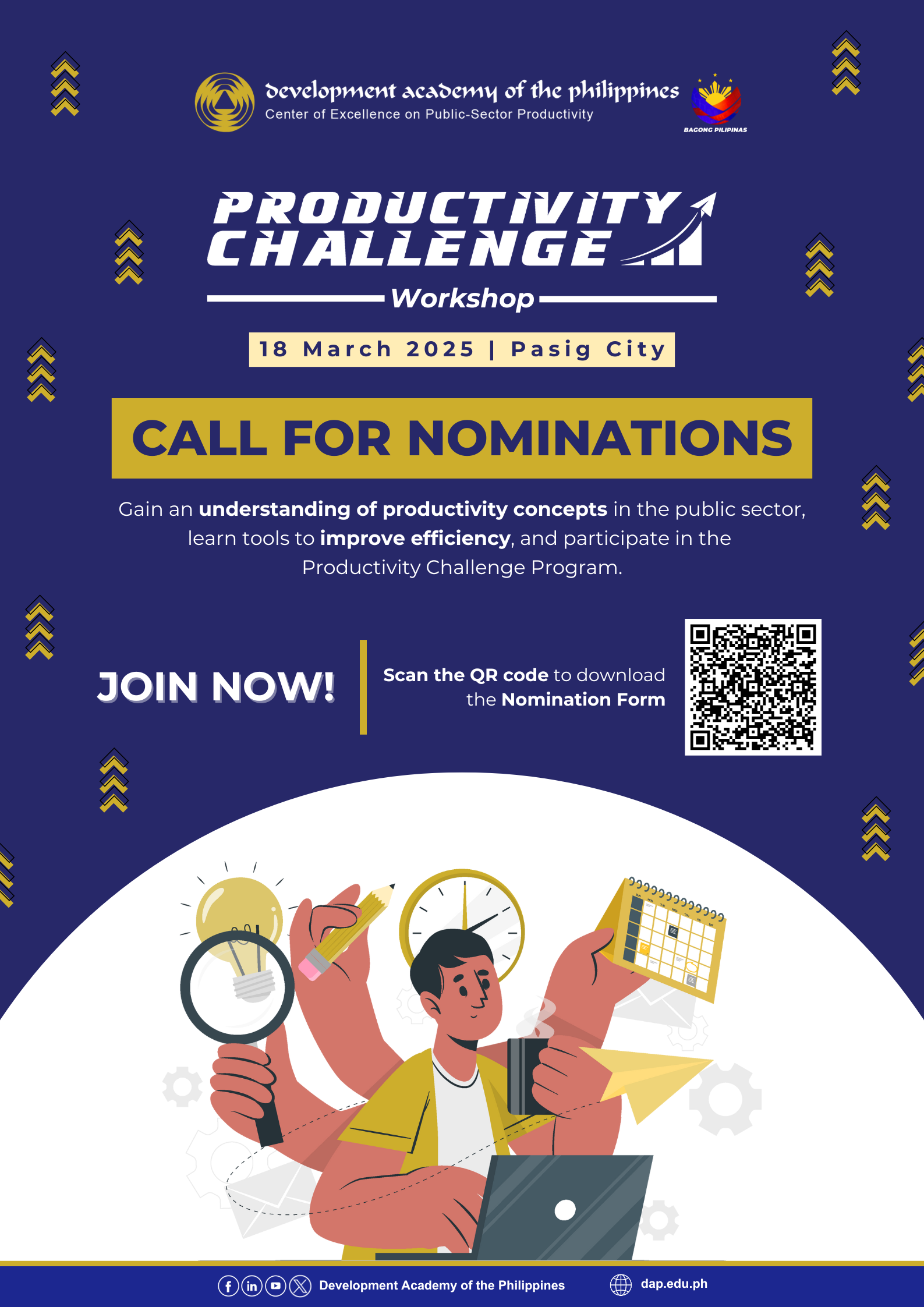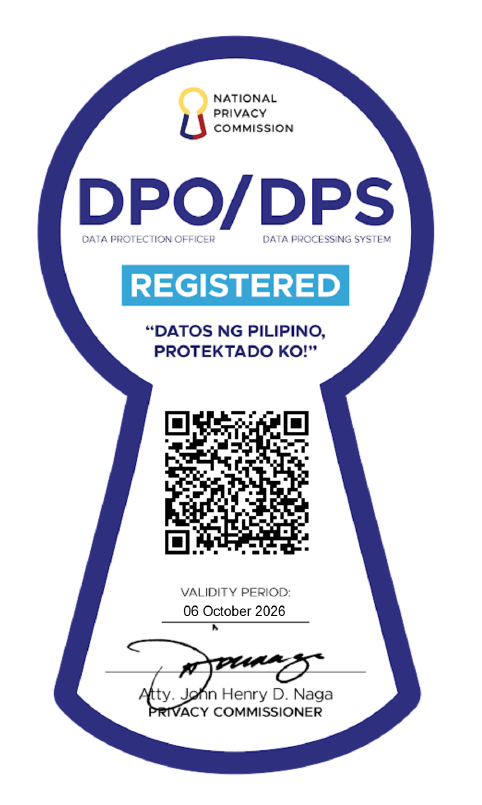2024 CBILLS Thursday Talks 2 Resource Persons: (from Left to Right) ED Novel Bangsal, Dr. Ma. Victoria Raquiza, ASec. Rolando Toledo, Ms. Jennifer Imperial, and ED. Sandino Soliman, during the synthesis at the Virata Hall in DAP Pasig
Pasig City, Philippines – Scholars from the Philippine Congress explored the potential of citizen participation and non-governmental stakeholder engagement to elevate government accountability during the second installment of the Thursday Talks Series on June 13, 2024, at the Development Academy of the Philippines (DAP) in Pasig. The lecture series, titled “Building Trust: Opportunities for Citizen Participation in Public Accountability,” is part of the ongoing Capability Building on Innovative Leadership for Legislative Staff (CBILLS) Program organized by DAP.
Dr. Ma. Victoria Raquiza, associate professor from the UP National College of Public Administration and Governance, introduced the concepts of representative bureaucracy and intersectionality as frameworks for public policy.
The session continued with valuable insights from Department of Budget and Management Assistant Secretary Rolando Toledo and Ms. Jennifer Imperial, Chief Administrative Officer of the Commission on Audit’s Project Management Office, who discussed the Philippine Open Government Partnership and the Citizen Participatory Audit, respectively. These case studies showcased the tangible impact of citizen participation in fiscal processes.
Executive Director Sandino Soliman of the Caucus of Development NGO Networks emphasized the crucial role of civil society organizations (CSOs) in grassroots engagement and advocacy in his reaction to the sessions.
Executive Director Novel Bangsal of the Congressional Policy and Budget Research Department from the House of Representatives facilitated an engaging dialogue between attendees and speakers. The discussion focused on ways CSOs can further participate in the budget process, strategies to encourage public involvement, and efforts to institutionalize citizen participation.
The resource persons expressed their appreciation for platforms advocating for openness and transparency in fiscal processes. They urged scholars to support ongoing efforts to optimize available spaces and enhance capacities for public engagement. In concluding the session, ED Bangsal remarked, “Trust is a two-way street.” He elaborated that while the government must cultivate public trust to encourage civic participation, civil society organizations are equally responsible for demonstrating their competence and reliability as collaborative partners, ensuring that discussions lead to meaningful and impactful outcomes.
The third and final installment of the Thursday Talks Series, scheduled on July 18, 2024, will explore the importance of free and balanced information in empowering citizens to achieve genuine and meaningful participation.
(Ziona Gilia S. Castro)





